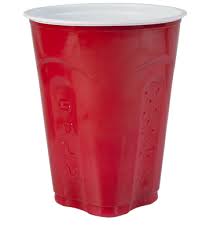Drinking is a way to let go of your worries, forget about your problems, relieve the stress school puts upon you. Well at least that’s what most college students tell themselves when they walk into their first frat party and take that red solo cup from the stranger standing next to them. At that moment all they can think about is “party’s on.” At first everything might seem all great but where problems arise is when some students feel an uncontrollable need to drink an insane amount of alcohol with the sole purpose of blacking out.
Partying in college is anything but unheard of, it’s actually a pretty stereotypical representation of “the college life.” Most students drink to cope with the stress school puts upon them, but is that really a solution?
Everyone deserves a break after being up at all hours of the night studying. Rewarding yourself by going out with a couple of friends to a party is perfectly fine, but it is crucial that you steer away from alcohol and all its terrible repercussions. Especially considering a couple of hours of fun can lead to far more severe consequences.
Ashton Katherine Carrick understands the enormous weight put upon young adults in college, and in her article, “Drinking to Blackout” with The New York Times, she reflects on her college experiences and how she was able to steer away from this form of coping. Although Ashton was able to avoid the constant pressure put upon her to drink, she realized that, “Blacking out has become so normal that even if you don’t personally do it, you understand why others do. It’s a mutually recognized method of stress relief. To treat it as anything else would be judgmental.” The realization that many have become desensitized to the problem of binge drinking is clearly evident from the author’s perspective.
Binge drinking is actually a very serious issue and shouldn’t be taken lightly. According to the National Institute on Alcohol Abuse and Alcoholism, as of 2014, more than 1,800 students have died every year from alcohol-related causes. In addition, over 600,000 students have been injured while drunk and over 100,000 became victims of alcohol-influenced sexual assaults. One in four students say their academic performance has suffered due to drinking. Alcoholism in college will continue to be a concerning issue if the young adults aren’t willing to realize that it has become a serious problem that necessitates a change in behavior.
Drinking to cope isn’t the only reason students drink; adolescents are constantly thinking about how others perceive them, what image they are projecting to society. So odds are the majority of the incoming freshman will give in to the pressure of going to college parties and drinking, only to preserve their image.
For many students, alcohol use begins before arriving at college. So although drinking may not be foreign to most, the pressure to misuse alcohol will still be present and more intensified at times. Interacting with new peers exposes students to the college norms of alcohol use, and the absence of parental stability allows for this process to become much more attainable.
If students find themselves in the vicious cycle of binge drinking a solution is within reach. Most colleges offer alcohol and drug prevention programs on campus. Support is provided, but students need to identify that there is a problem first.
Young adults have pressures that sometimes warrant them finding a way to “let loose” but there is no excuse to jeopardize your future the consequences of a couple of hours of fun can lead to a lifetime of regret. Binge drinking should never be the answer.
